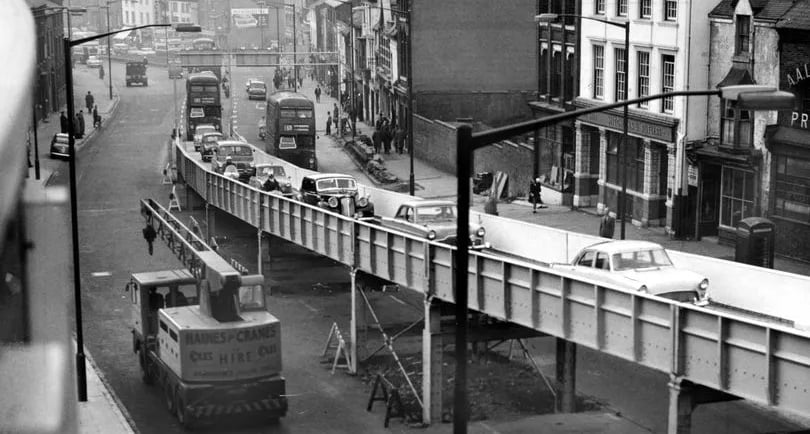From Detour to Destination
Ray Bradnock gives us another view from the 'armour plated' district of Digbeth.
8/24/20233 min read


From Detour to Destination
I was born in 1962 into the gritty end of our fabulous conurbation known as the Black Country. That said, I spent much of my childhood growing up in Birmingham and its suburbs. The city was reaching the tipping point of trying to shake off post-war austerity and head towards true liberation in a perceived brighter future. Some locations were retaining, regaining, or seeking to acquire an elevated status, throwing off a thin veneer of 1950s protective varnish in favour of a more comfortable “we knew it would all be ok”. Then there was Digbeth.
No such thing as veneer for this place, more a case of armour plating, made locally of course. Historically, the streets in and around Digbeth were dense with industrial manufacturing, encouraged by the deeds of Henry Bradford in the 18th century. His donations allowed industrial start-ups to be poured from their incubator test tubes into the empty spaces, leaving them to set fast, and establish a base for expansion into the industrial revolution. The result was a hard place, for hard industries, and hard men with hard attitudes. If Digbeth was on a Friday night out in a pub, then it would probably be the one who started the fight.
But let me return to the last 60 years. Coming into Birmingham from the south was an adventure for a young kid on the bus, or even in a relative’s car if you were lucky. Something had always been fixed in my mind as the transition point from the outskirts of the city to the centre, and the entrance to the busy place where life ran at a different pace; the Camp Hill Flyover, which in its time had flowed a single lane of traffic in both directions, but not simultaneously, stood as a modern drawbridge which gave access to the inner kingdom of the central life of Brum.
This edifice languished at the outer edge of Digbeth, like a pre-Game of Thrones dragon, daring you to pass down its throat and enter the belly of the beast. There it was again, a bullish ultimatum to those who thought they might have the stones to make the journey. Born in 1961, with just 30 hours of labour over a weekend, the dragon was finally slain in 1989, living nearly three times its intended original lifespan.
In the 1970s, Digbeth, and the city in general did not enjoy their finest hours. Political unrest, football violence, racial tensions, and rising crime all promoted reasons to make a detour around the area, especially at night time, when walking along the A34 spine of Digbeth was something only to be undertaken for a bet. Even the resilient Blues fans could sense from their base in the Old Crown that it was no longer a family atmosphere. Mugging had been re-invented, and was gaining a certain desperate caché amongst the homeless and drug dependent communities. This sub-culture economic activity was pushing mainstream citizens to different locations. If you had to drive home through the area late at night, then doors were locked, and amber lights run until you reached the sanitising sight of the flyover in the rear view mirror.
But Digbeth doesn’t take that kind of crap forever. The next 30 years saw a sloth-like renovation of sorts, with the arrival of new projects that included the original 1929 bus station touting an upgrade. It eventually sloughed off its skin, and emerged as the Digbeth, and then Birmingham Coach Station, serving to affordably funnel hordes of students and silverback grandparents around this fair Albion. The station now eyes the HS2 interloper with curiosity, determined not to easily accept a cuckoo into its nest. Upgrades do not automatically mean a complete move away from a gritty underbelly; even from the station offices, you could still see the dodgy vape shops and pornographic book exchange. Digbeth remembers its roots.
Now, in the new Carolean age, perhaps there is another hue, another light dawning. Metro tracks, peaky chaps with sharp haircuts, and Covid murals, are prodding us to look back to the future. Funky bonded work space, letting the Typhoo Tea factory mash into the BBC, and ensuring Bird’s custard is never forgotten, is evidence that the sleazy portal detour is over, and a new vibrant Digbeth destination might just keep you from moving on to its big city centre brother.
Give it try. Live a little. Write your own story.
